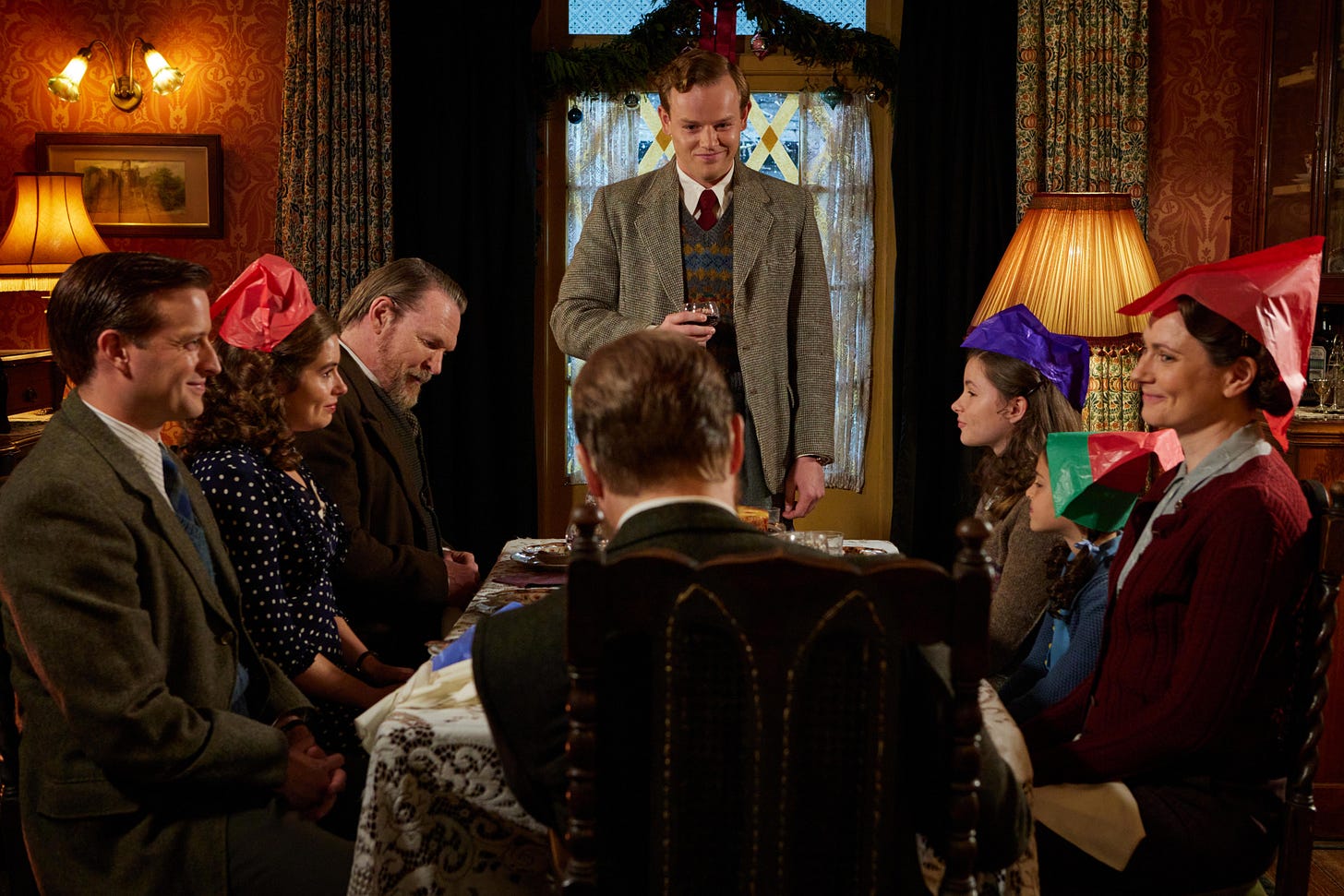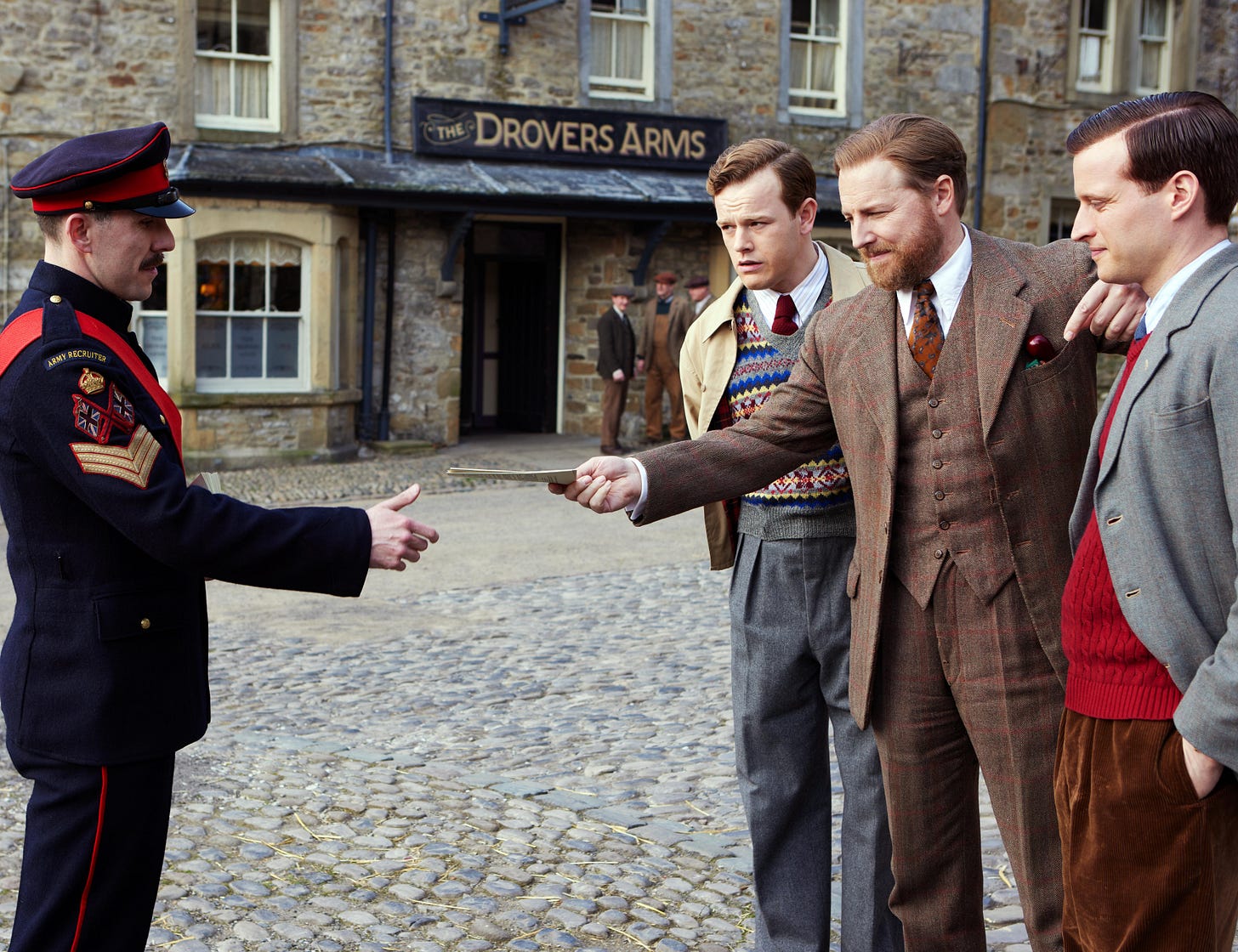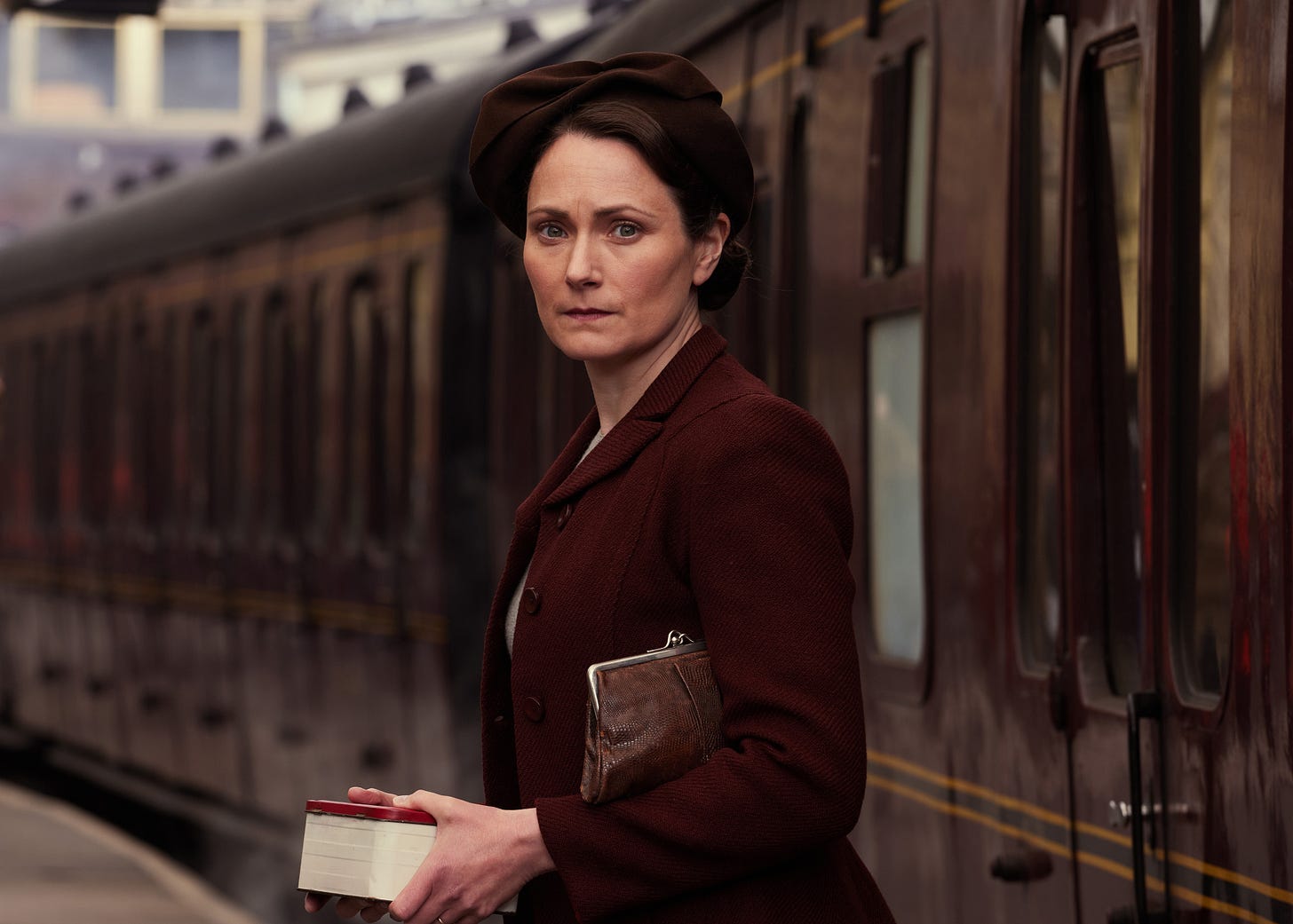'All Creatures Great and Small' Season 3 Explores Trauma as WWII Approaches
The usually wholesome show doesn't shy away from darker themes.
We’ve known this day would come. For fans of the wholesome British series All Creatures Great and Small who also know their history, the drumbeat of World War II has been looming since day one, being that the show begins in 1937 – just two years before war would break out with Germany’s invasion of Poland. With season 3, which this week finished airing in the US on PBS as part of their Masterpiece Theater programming, the war is finally here.
Adapted from the famous books of the same name by veterinarian Alf Wright, who wrote under the pen name James Herriot, the series follows James (Nicholas Ralph) on his adventures treating the various pets and farm animals of the fictional idyllic small English countryside town of Darrowby in the Yorkshire Dales. A paragon of escapist television, delving into such heavy topics is new territory for the show, and yet, it does so with nuance and sensitivity, using the approaching war as a way to talk about trauma, especially with its characters who are World War I veterans.
This is perhaps no more exemplified than in the character of Siegfried Farnon (Samuel West), the owner of the veterinary practice and James’s mentor. For most of the new season, war is not actually upon us yet – Britain finally declares war in episode 6, the season finale – but the country is in full preparation, and recruiting for the various branches of the military is well underway. In the season 3 premiere, James and fellow vet Tristan (Callum Woodhouse), who’s also Siegfried’s younger brother, are approached by a recruiter, only to be quickly ushered away by Siegfried, pontificating about how the recruiter is “wasting his time with these two” as these are veterinarians, and therefore in a protected profession that is essential to the home-front. Initially it seems like Siegfried is just being his usual obstinate self, but it soon becomes clear that he has much greater reasons for trying to keep his young charges out of the war.
It’s in episode 3, “Surviving Siegfried,” that we realize just how much Siegfried is still reliving his World War I experiences. As he treats a traumatized race horse, the episode flashes back to when Siegfried was a young man serving as a veterinarian in the war, watching his comrades die to save the horses that carried the soldiers, and then having to oversee the slaughter of the poor beasts when the war was over and they were no longer useful. A particularly somber storyline, it sheds light on why Siegfried is the way he is – jovial, but with a short temper. Putting on a boisterous front is how Siegfried manages to make it through life after all the horrors he’s seen.
It makes Siegfried’s exclamations throughout the season over how it’s possible that the world is once again headed towards war take on an extra weight. He certainly never thought that he’d ever have to go through this again, and the sentiment is echoed by a lot of the show’s older characters. I can only imagine the internal terror of those who have lived through the First World War (1914-1918) being forced to then confront living through another one (1939-1945).
James and Tristan are repeatedly pressured into enlisting throughout the season as they watch their friends and neighbors sign up, and James in particular has to deal with his own sense of duty. But Siegfried, as well as James’s father-in-law Richard Alderson (Tony Pitts), keep at it in trying to convince them not to go, that they’re much more needed at home as essential workers who keep the farms running. Siegfried knows just how much it’s not worth it. That there’s no glory in war, and honor means nothing when you’re in the muck, experiencing violence that you may never come back from, if you survive at all. In “Surviving Siegfried,” we learn that Siegfried’s friend from the war recently committed suicide. It’s 21 years later, but the casualties from the war are still ongoing.
One person who was never the same after his time in the war is Mrs. Hall’s (Anna Madeley) ex-husband. In episode 5, Mrs. Hall, the housekeeper for Skeldale house which houses the veterinary practice, goes to see her estranged son Edward (Conor Deane) off to his military training, and when Edward acknowledges how badly his dad treated her, she explains that he was never like that before the war. That her being able to go back to normal life after the war, and her husband not, was just a matter of luck. The statement is ominous, as Edward faces down his own wartime service.
Even Mrs. H’s friend and potential love interest Gerald (Will Thorp) shares during one of their daily walks how the war affected him. “I didn’t really feel like I deserved to be happy back then,” he says in episode 2 of walking away from the woman he once almost married. “After what happened to so many of my friends in the war. It just didn’t seem fair.” When Mrs. H says that Gerald must’ve had “some courage” since he went off to fight in the war, Gerald responds that he “mistook bravado for bravery.” Well put, Gerald.
After James and Tristan enlist in the season finale, despite everyone’s best efforts including that of James’s wife Helen (Rachel Shenton) to convince them otherwise, Siegfried learns in the Christmas Special that Tristan is about to be called up, and he has a chance to stop it. If he can get an injured horse to compete in an upcoming race, his old boss in the army can pull strings to make sure Tristan is never called. It goes against everything Siegfried believes in to not put the animal first, but he’ll do anything to keep his little brother, who he practically raised, safe from the war. When Tristan discovers what Siegfried is up to, he puts a stop to it, and in the end, Siegfried has to say goodbye to his brother, and hope that he gets the chance to see him again. “Are we huggers now?” says Tristan, as they embrace in front of the train. “Yes, we bloody well are,” responds Siegfried.







